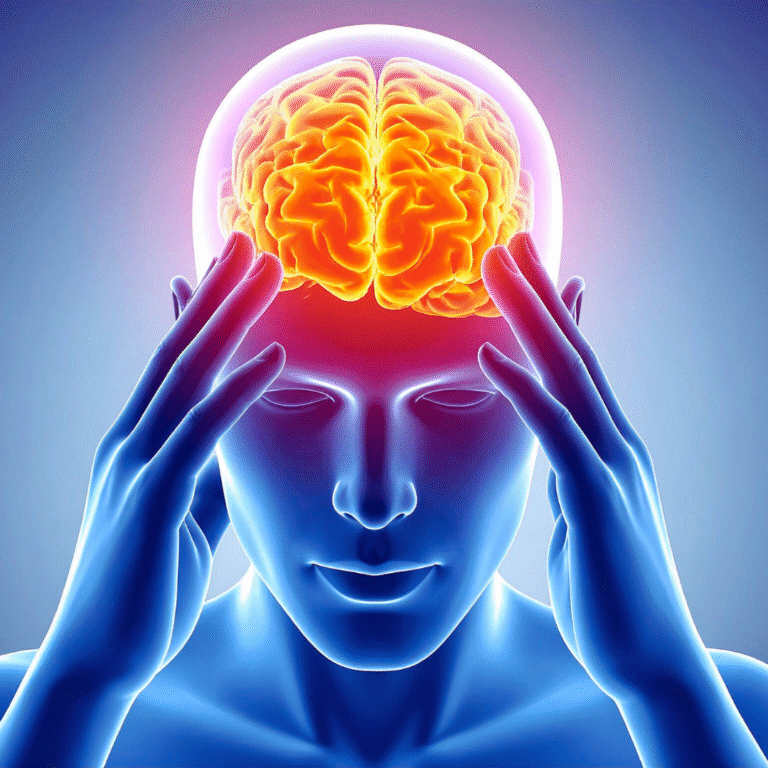Exercise is widely recognised for its physical benefits, but its impact on brain health is equally significant. Research shows that regular physical activity can enhance cognitive function, improve mood, and reduce the risk of neurodegenerative diseases. This connection between movement and mental sharpness is capturing the attention of scientists and health enthusiasts alike.
Engaging in exercise promotes increased blood flow to the brain, which supports the growth of new neurons and enhances synaptic plasticity—the ability of the brain to adapt and form new connections. Moreover, exercise stimulates the release of beneficial proteins and hormones that can help combat stress and anxiety, fostering a healthier mental state.
In a world where mental health is becoming more prominent, understanding the profound relationship between physical activity and brain function can inspire individuals to incorporate more movement into their daily routines. With the right approach to exercise, anyone can harness the power of fitness to not only feel better physically but also think more clearly and maintain their cognitive health over time.
Fundamentals of Exercise and Brain Health
Exercise plays a crucial role in enhancing brain health. By understanding the biological mechanisms and the specific types of exercise, one can appreciate how physical activity benefits cognitive functions and overall mental well-being.
Biological Mechanisms Underpinning the Benefits of Exercise
Exercise stimulates several biological processes that enhance brain health. One key factor is the increase in brain-derived neurotrophic factor (BDNF), a protein crucial for neuroplasticity, which supports the growth and maintenance of neurons. Higher levels of BDNF are linked to improved memory and learning capabilities.
Additionally, physical activity boosts blood flow to the brain. This increased circulation delivers essential nutrients and oxygen, facilitating optimal brain function. Regular exercise also reduces inflammation and oxidative stress, which can adversely affect cognitive health.
Types of Exercise and Their Specific Impacts on Brain Function
Different types of exercise influence brain health in varied ways. Aerobic exercise, such as running or cycling, has been shown to enhance cardiovascular health and improve overall brain function. This type of activity is particularly effective at increasing BDNF levels, supporting neurogenesis—the formation of new neurons.
Resistance training also has specific benefits. It aids in cognitive function by promoting hormonal changes that positively affect mood and mental clarity. Studies suggest that both aerobic and resistance training contribute to better attention, improved memory, and a noticeable reduction in cognitive decline risk, making a well-rounded exercise routine beneficial for brain health.
Exercise and Cognitive Performance across the Lifespan
Exercise significantly influences cognitive performance at different life stages, impacting learning in childhood and mitigating cognitive decline in later years. Engaging in regular physical activity fosters brain health, enhances memory, and supports overall cognitive function.
Effects of Exercise on Childhood Learning and Academic Achievement
Regular physical activity in children has been linked to improved academic outcomes. Studies indicate that exercise positively affects learning, memory, and overall cognitive flexibility. For instance, increased physical fitness is associated with better scores on standardised cognitive tests.
The hippocampus, a key region for memory and learning, shows enhanced volume in children who are physically active. This growth is largely attributed to neurotrophic factors such as brain-derived neurotrophic factor (BDNF) and vascular endothelial growth factor (VEGF).
In school settings, integrated physical activity programmes have resulted in marked improvements in academic achievement. Schools that implement movement-based learning experiences often report higher student engagement and improved grades across various subjects.
Role of Physical Fitness in Combating Age-Related Cognitive Decline
As individuals age, cognitive decline becomes more prevalent. Regular exercise has emerged as a potential intervention to slow down these age-related changes. Research indicates that engaging in moderate-intensity aerobic exercise can maintain cognitive health and enhance brain plasticity.
Physical activity stimulates the release of neurotrophic factors, which support the survival of neurons and promote neural connections. Enhanced cardiovascular health from exercise also contributes to improved brain function and can increase hippocampal volume, often implicated in dementia and Alzheimer’s disease.
Moreover, older adults who maintain higher levels of physical fitness often exhibit better memory retention and cognitive flexibility. These benefits are critical in mitigating the onset of cognitive impairment and promoting healthier ageing.
Impact of Exercise on Older Adults and Cognitive Health
For older adults, regular physical activity is crucial for sustaining cognitive health. Evidence suggests that exercise programmes designed for seniors can directly improve memory, executive function, and overall mental sharpness.
Engagement in activities such as walking or strength training leads to significant enhancements in cognitive performance. Studies show that older adults who participate in consistent exercise tend to perform better on cognitive tests compared to sedentary peers.
Furthermore, exercise is linked to a lower risk of developing serious conditions such as dementia and Alzheimer’s disease. This protective effect underscores the importance of physical activity in maintaining brain health and function in the ageing population.
While exercise plays a critical role in preventing cognitive decline, it’s equally important to consider supportive options when conditions like dementia or Alzheimer’s have already progressed. For families facing this reality, searching for assisted living with memory care near me can be a vital first step toward ensuring the safety, dignity, and quality of life of their loved ones. These specialized communities are equipped to meet the complex needs of individuals with memory impairment, offering 24-hour support, structured routines, and cognitive-focused therapies in a secure environment.
For those looking to be proactive, regular exercise remains one of the most accessible and effective strategies to reduce the risk of cognitive deterioration. Incorporating even moderate physical activity into daily routines can serve as a powerful prevention measure against age-related cognitive disorders.
Psychological Aspects of Exercise on Brain Function
Exercise plays a significant role in enhancing mood and reducing anxiety, contributing to overall mental health and well-being. Additionally, physical activity affects stress levels and the management of depression, promoting neurogenesis and the balance of neurotransmitters.
Exercise as a Tool for Mood Enhancement and Reduction of Anxiety
Regular physical activity improves mood significantly. It stimulates the release of neurotransmitters such as serotonin and endorphins, which can foster feelings of happiness and relaxation.
As exercise reduces inflammation in the body, it also diminishes symptoms associated with anxiety. Engaging in activities like aerobic exercises or strength training has been shown to improve focus and mental clarity, enabling individuals to manage anxiety better.
Furthermore, the routine associated with exercise creates a sense of accomplishment and purpose. This can lead to a more positive self-image and enhance emotional resilience, making them better equipped to handle daily stressors.
Influence of Physical Activity on Stress and Depression
Physical activity directly impacts stress by encouraging the body to adapt to physical challenges, increasing resilience to future stressors. Regular exercise reduces levels of cortisol, a hormone associated with stress, leading to improved emotional regulation.
In relation to depression, studies demonstrate that people who engage in consistent exercise report lower levels of depressive symptoms. Exercise promotes neurogenesis, and the growth of new brain cells, which is vital for maintaining mental health.
Furthermore, the social aspects of group exercise can alleviate feelings of isolation often linked to depression. Increased engagement in physical activities fosters connections, enhancing overall emotional well-being and providing support.
Exercise and the Prevention of Neurological Diseases
Engaging in regular physical activity has been linked to significant protective effects against various neurological diseases. The following sections explore how exercise can reduce the risk of neurodegenerative diseases and its benefits for cognitive health.
Physical Activity’s Role in Reducing the Risk of Neurodegenerative Diseases
Physical activity is essential in reducing the risk of neurodegenerative diseases such as Alzheimer’s and Parkinson’s. Regular exercise increases the production of vascular endothelial growth factor (VEGF), which promotes blood vessel growth and delivery of oxygen to the brain. This enhanced blood flow supports neuronal health and encourages synaptic plasticity.
Research indicates that those who engage in regular exercise have lower levels of inflammation and oxidative stress, both of which are contributors to neurodegeneration. Furthermore, exercise can help maintain healthy dopamine levels, critical in warding off Parkinson’s treatment symptoms. Because exercise targets the underlying physiology of the brain, it can be recommended as a core component of a modern Parkinson’s treatment plan to help slow the progression of motor symptoms. By combining targeted physical therapy with traditional medical care, patients can improve their daily quality of life and functional independence.
Exercise and Its Protective Effects Against Cognitive Disorders
Exercise has shown significant benefits in preventing cognitive disorders through various mechanisms. It enhances cerebral blood flow, improving nutrient and oxygen delivery to the brain, thereby supporting cognitive functions.
Additionally, physical activity stimulates neurogenesis, which refers to the formation of new neurons. This process is crucial in mitigating cognitive decline associated with ageing. Studies demonstrate that even moderate-intensity aerobic workouts can lead to improved memory and attention in older adults, reducing their risk of developing dementia.
Incorporating regular exercise can, therefore, serve as a protective strategy against cognitive decline and other neurological conditions.




